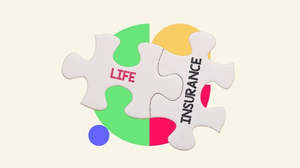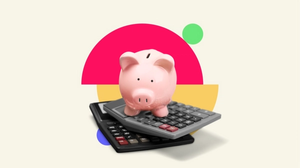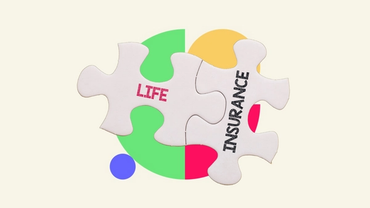How to create a financial plan for poor health in 4 simple steps
By Boring Money
1 Oct, 2024
October is Breast Cancer Awareness Month and this year, it's estimated that more than 360,000 people in the UK will be diagnosed with the disease.[1] However, millions of us already know or know of someone who has been affected by breast cancer. To mark Breast Cancer Awareness 2024, we're looking at some simple steps you can take to protect your finances - and your family - in the event you become seriously ill.

In an unpredictable world, planning for potential health issues is crucial if you want to be financially secure. After all, you never know what could be right around the corner. Preparing for serious health problems or illness can make all the difference to your loved ones as well as yourself.
From emergency funds to insurance, there are things you can do today to protect yourself in the future. In this article, we discuss four practical things you can do to prep your finances so you can support yourself and those who rely on you. Scroll down to find out what you need to do.
1. Build and maintain an emergency fund
Health emergencies? They don’t tell you they’re round the corner. That’s why having a robust emergency fund in place can be a lifesaver if the going suddenly gets tough. An emergency fund is a stash of cash that you set aside as a financial safety net, in case you have any unexpected costs.
The general consensus is that you should aim to set aside at least three to six months' worth of basic living expenses in an easy access savings account. For example, if you know you spend a total of £1,500 every month on your mortgage, utility bills, groceries and petrol, then you’d need to save a minimum of £4,500 in your emergency fund. This should be enough to temporarily support you if you encounter any sudden medical bills or you’re out of work due to illness.
The best way to build up your emergency fund is to contribute into it in manageable chunks on a regular basis. This could take a while – a year or two even – but doing so means you can gradually add to your fund without squeezing your wallet too hard in the process.
The same goes for after you take money out of your emergency fund - you should aim to rebuild it again in a slow and sustainable manner until you’ve replenished your stash.
However, if you have any outstanding debts (apart from a mortgage), it’s crucial to get on top of these before you start building an emergency fund. The cost of debts such as payday or personal loans, credit card bills and unarranged overdrafts can quickly spiral, so it’s essential to prioritise paying these off first. Check out our guide to tackling debt if this is something you need to do.
If you've dealt with any outstanding debt and you're ready to start building your emergency fund, read about how to get going by clicking the link below.
2. Secure your family’s future with Junior ISAs and trusts
Planning for poor health also involves safeguarding your family's finances in the future. There are two main ways you can do this – with trusts and Junior ISAs. Together these products enable you to protect any assets you’d like your loved ones to inherit and build up wealth on their behalf.
 Unlock this article to continue reading
Unlock this article to continue reading
Already have an account? Login






